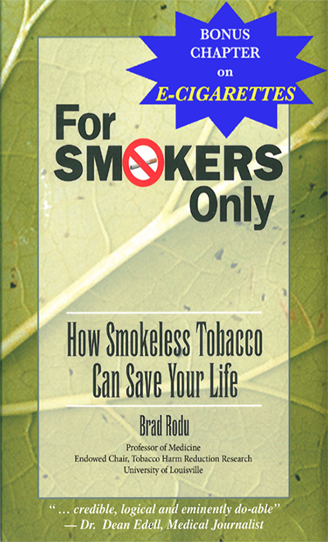Smoking increased significantly among teens aged 12-17 in
states that banned e-cigarette sales to minors compared with states that didn’t
impose bans, according to a study in the Journal
of Health Economics (abstract here)
by Yale School of Public Health’s Abigail Friedman.
Dr. Friedman used smoking data from the National Survey on
Drug Use and Health (2002 to 2013). She accounted for other
youth smoking factors that vary among states, such as cigarette taxes,
smoke-free air laws and medical marijuana laws.
Dr. Friedman concludes: “Across the board, this paper’s
analyses find that reducing e-cigarette access increases smoking among 12 to 17
year olds. The effect is large: over the 8 years preceding the first bans on
e-cigarette sales to minors, smoking in this age group fell an average of 1.3
percentage points per two year period. The estimated 0.9 percentage point rise
in smoking due to bans on e-cigarette sales to minors counters 70 percent of
the downward pre-trend in states with such bans.”
She notes, “This paper’s findings will prove surprising for
many: policy discussions to date have not considered that banning e-cigarette
sales to minors might increase teen smoking. Assuming that e-cigarettes are indeed less
risky to one’s health than traditional cigarettes, as suggested by
existing evidence on the subject, this result calls such
bans into question.” (emphasis in original)
Dr. Friedman makes a bold suggestion – one that is sensible
and defensible: Ban e-cig “sales to those younger than 16 instead of 18, as
initiation of regular smoking first spikes at the former age.”
E-cigarette companies and advocates support bans on e-cig
sales to minors. While health
organizations like the American Cancer Society and Heart Association object to
youth e-cig use, they oppose bans for two reasons: 1) e-cig companies support
them, and 2) according to the health groups youth bans are not as effective as
higher sales taxes and smoke-free or clean-air laws (discussed here).
E-cigarette opponents have been quick to challenge the Yale
study. In a
Winston-Salem Journal article, Dr. John Spangler of Wake Forest Baptist Medical Center called the study flawed because
it “does not account for unmeasured factors, such as racial and ethnic
population mix in states.” This is a false
charge, as the researchers adjusted “for the percent of [each] state’s
population identifying as Black, as a different racial minority, and as
Hispanic.” These factors were noted in all
three results tables.
Other e-cig prohibitionists support the bizarre logic of
University of California- San Francisco professor Stanton Glantz, who has
argued in the past that banning
e-cigarette sales to kids only makes teens want them more. Dr. Friedman’s study turns this argument on
its head: Banning e-cig sales increases teen smoking.










No comments:
Post a Comment